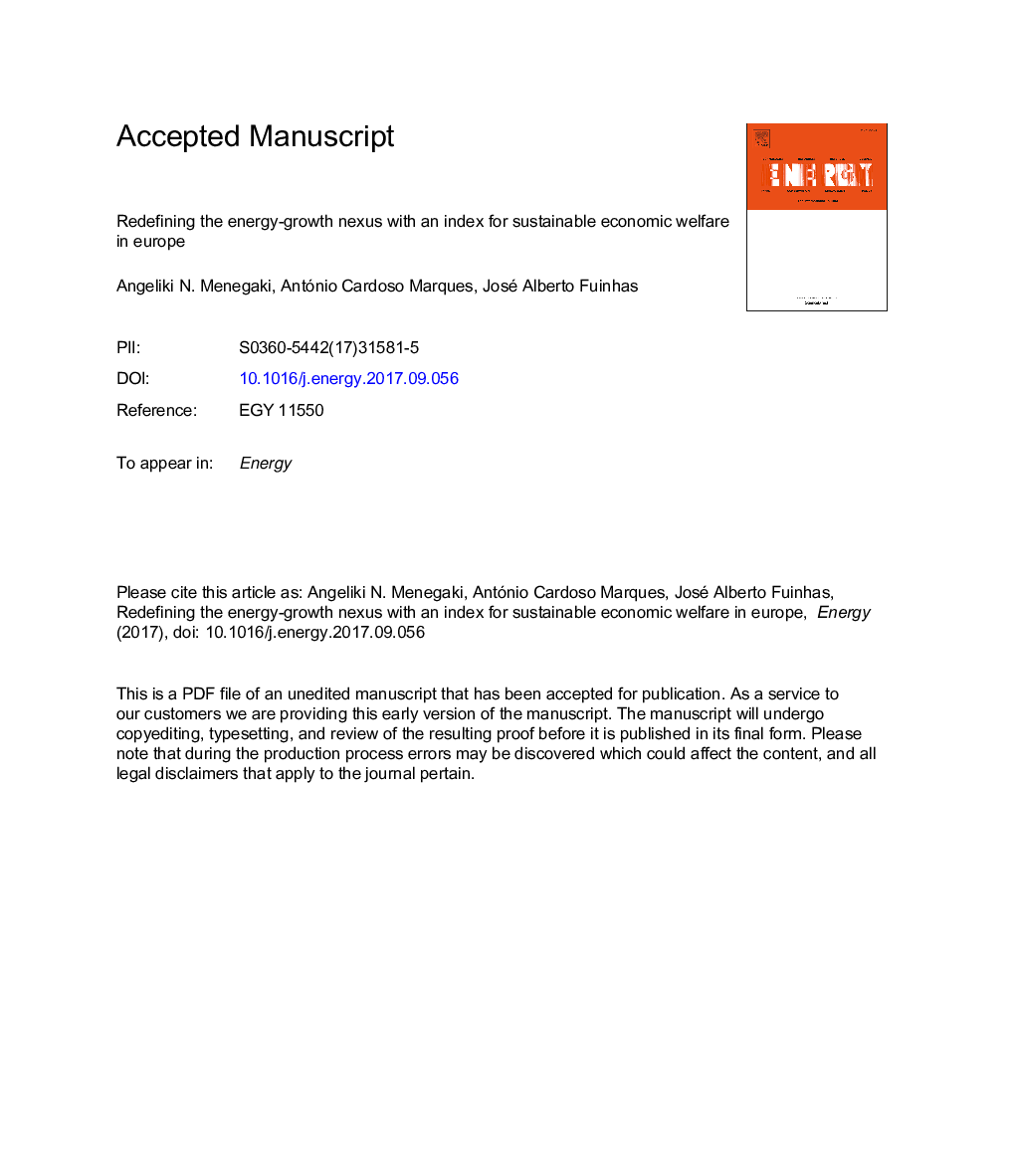| Article ID | Journal | Published Year | Pages | File Type |
|---|---|---|---|---|
| 8072723 | Energy | 2017 | 38 Pages |
Abstract
This paper inaugurates the study of the energy-sustainable economic growth for Europe. It is novel both because it calculates an Index for Sustainable Economic Welfare (ISEW) index for European countries, but foremost because it compares the conventional energy-growth nexus with the newly appeared energy-sustainable growth nexus. Also, it goes further by suggesting ways to overcome the limitations pointed out to the use of the conventional GDP. The paper uses the road sector energy consumption, which is in accordance with the enormous discussion about the high energy intensity of the road transport sector and about the huge dependence from fossil sources of this sector. The dynamic Driscoll-Kraay estimator is also used, which allows decomposing the effects in the short- and long-run and is also robust in the presence of cross-sectional dependence. Results show that economic growth and sustainable economic welfare are not perfect substitute variables. In the long-run, the feedback hypothesis is verified only for sustainable growth.
Keywords
Related Topics
Physical Sciences and Engineering
Energy
Energy (General)
Authors
Angeliki N. Menegaki, António Cardoso Marques, José Alberto Fuinhas,
